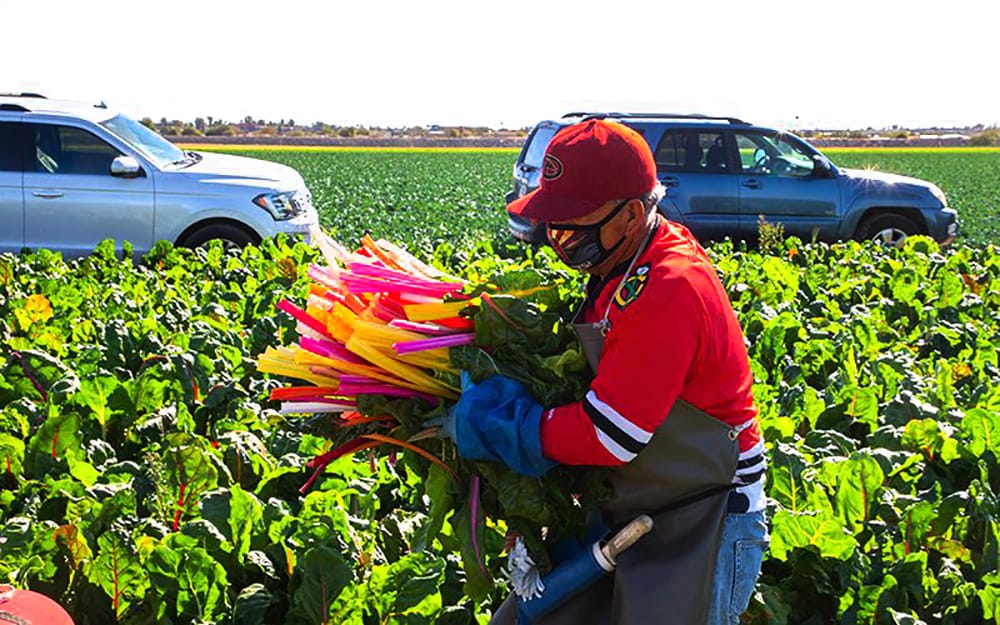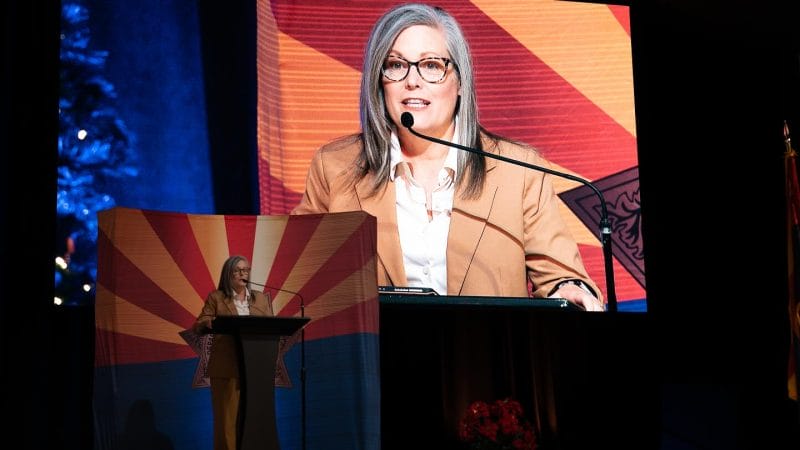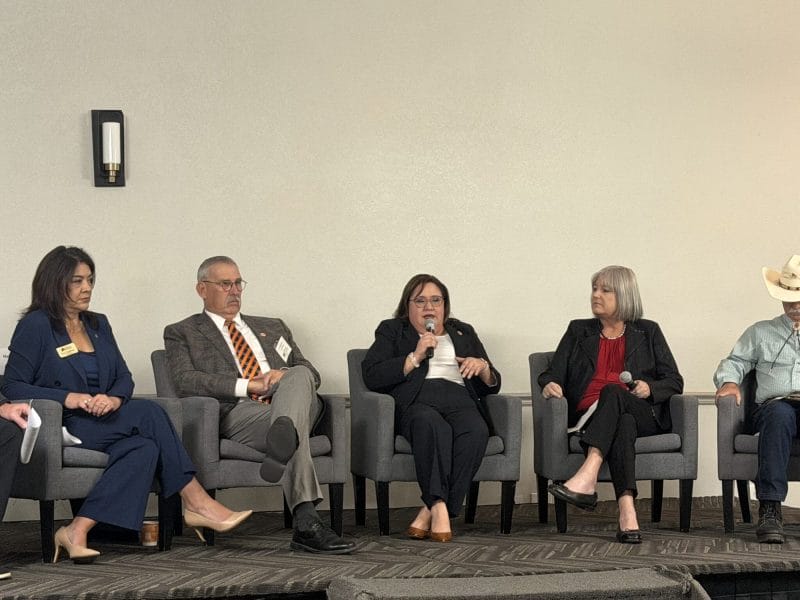Field workers cut Swiss chard, bringing the produce to workers who sort good plants from bad. Good plants are boxed and sent to market, while the bad are used to fertilize the field. / Photo by Jeff Rosenfield/Cronkite News
By Ryan Vlahovich | Cronkite News
The workers swing their machetes, chopping vegetables under the heat of a midmorning sun.
When the migrant workers take a moment to swipe sweat from their masked faces, they can see the wall along the Mexican border, not a half-mile distant. But before long, they turn their attention back to a rainbow colored field of Swiss chard.
It takes more time to clear a field since the COVID-19 pandemic began a year ago. Where there had been 25 workers in the field, there are now 15, to create social distance.
More buses are used to drive workers to the fields, and plexiglass guards were placed on farming equipment, according to the Yuma Chamber of Commerce. Some farms have added masks, daily temperature and blood-pressure checks and contact tracing after outbreaks.
The protocols were necessary to protect Yuma’s top industry, which depends on migrant workers – whom Gov. Doug Ducey declared essential when the pandemic began more than a year ago. Yuma is one of the nation’s major producers of vegetables, with the produce ending up in kitchens across the U.S.
Now, attention is turning to getting farmworkers vaccinated, but advocates for migrant workers say that effort trails the need.








